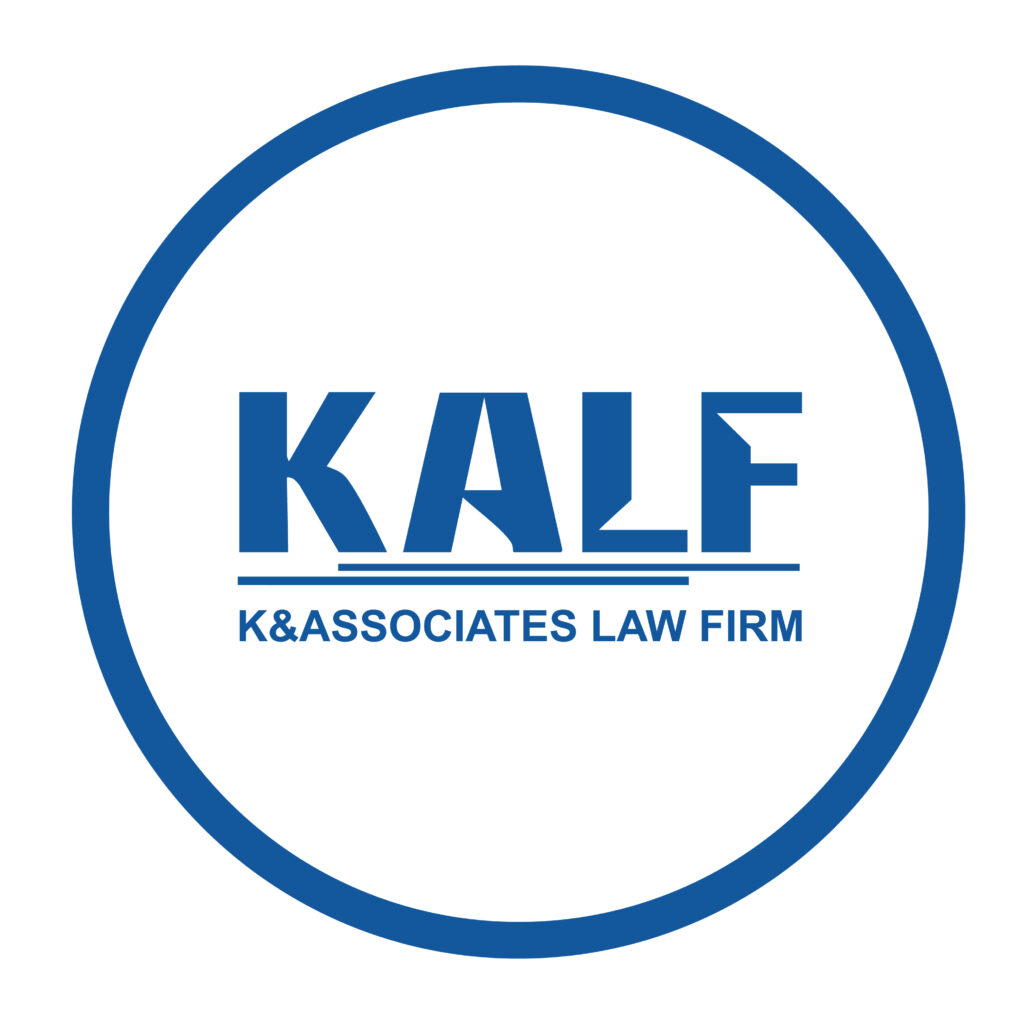-
What is offshore investment?
Outbound investment is understood as the investment of resources (finance, technology, ownership,…) by investors, organizations or individuals in projects, enterprises or assets in a country other than the country in which they originated or their original registered address.
Investing abroad means expanding business opportunities, seeking profits and expanding markets in other countries. This provides economic and strategic benefits for organizations and individuals to invest, while contributing to global economic development and international cooperation. Foreign investment is made in the form of direct investment or indirect investment.

According to Clause 13, Article 3 of the Law on Investment 2020 stipulates as follows:
“Outward investment activity is the transfer of investment capital from Vietnam to abroad, using profits earned from this investment capital to carry out business investment activities abroad.”
Example: Buying shares of a foreign company; construction of real estate projects; establishment of branches and subsidiaries; invest in overseas manufacturing industries,…
-
The provisions of law on outward investment activities
– WTO commitments
– Investment Law 2020
– Enterprise Law 2020
– Decree 31/2021/ND-CP detailing and guiding the implementation of a number of articles of the Law on Investment
– Decree 16/2019/ND-CP amending and supplementing a number of articles of decrees regulating business conditions under state management of the State Bank of Vietnam
– Circular 03/2021/TT-BKHDT stipulating forms of documents and reports related to investment activities in Vietnam, investment from Vietnam to abroad and investment promotion

-
Conditions for foreign investors
To become a foreign investor in a particular country, investors need to meet the following conditions:
– Foreign investors belonging to different industries and carrying out investment activities at different times need to comply with all investment requirements and conditions applicable to each such industry or field;
– Foreign investors falling within the scope of application of international law on investment will have to comply with specific and detailed provisions on investment under each such treaty; In case an international treaty has been selected, the foreign investor needs to exercise his/her rights and perform his/her obligations in accordance with that international treaty;
– If foreign investors are not members of the WTO but make investments in Vietnam, it is necessary to comply with the conditions applicable to investors who are members of the WTO, unless otherwise provided for or otherwise provided for by international agreements between that country and Vietnam;
– For industries, domains and services that have not been regulated or committed in the form of commitment between Vietnam in the WTO and international treaties and there are no specific regulations on investment conditions under Vietnamese law, the investment registration agency must consult the Ministry of Planning and Investment, the Ministry of Industry Management to decide whether to consider whether to allow investment or not;
– In case foreign investors have been allowed to carry out investment activities where such industry, trade, field or service has been published on the National Foreign Investment Portal, the Investment Registration Agency shall decide whether to allow investment or not without consulting the Ministry of Industry Management.

-
Forms of foreign investment
Pursuant to Article 21 of the Law on Investment 2020 stipulates specific forms of investment as follows:
“1. To invest in the establishment of economic organizations.
- Investment in capital contribution, purchase of shares, purchase of contributed capital.
- Implementation of investment projects.
- Investment in the form of BCC contract.
- New forms of investment and types of economic organizations according to the Government’s regulations.”
4.1. Investment in the establishment of economic organizations
The form of establishment of an economic organization includes two methods:
– Establishment of a 100% foreign-invested company;
– Establishment of companies between domestic investors or domestic governments and foreign investors.
Before establishing an economic organization, foreign investors must have investment projects, carry out procedures for issuance of investment registration certificates and must satisfy conditions on charter capital ownership ratio in accordance with the law on securities, equitization and transformation of state-owned enterprises and conditions prescribed by law laws and treaties to which Vietnam is a signatory.
4.2. Implementation of investment projects
Foreign investors can sign investment contracts in the form of public-private partnership (PPP contract), which is an investment method implemented on the basis of a time-limited cooperation between the State and private investors through the signing of PPP contracts to attract private investors to participate in the implementation of PPP investment projects.

4.3. Investment under BCC contract
The form of investment under the BCC contract is a business cooperation and profit sharing among investors without the establishment of a new legal entity. This helps investors conduct investment activities quickly without spending a lot of time and money to establish and manage a new legal entity.
BCC contracts are signed between domestic investors and comply with the provisions of civil law. In case at least 1 party is a foreign investor, the procedures for issuance of an investment registration certificate must be complied with.
4.4. Investment in capital contribution, share purchase, purchase of contributed capital
Capital contribution, share purchase or purchase of contributed capital to economic organizations are all forms of indirect investment by foreign investors. This is the purchase of stocks, bonds or other valuable papers in which the investor is not directly involved in the management of investment activities. When implementing this form of investment, investors must comply with procedures and regulations related to capital contribution, share purchase, or purchase of contributed capital.
-
Procedures for establishing a 100% foreign-owned company
5.1. Procedures for applying for an Investment Registration Certificate
Step 1: The investor submits 01 dossier of application for an Investment Registration Certificate to the investment registration agency. The dossier includes the following:
A written request for implementation of an investment project, including a commitment to bear all costs and risks if the project is not approved.

- Documents on the legal status of the investor.
- Documents proving the financial capacity of the investor.
- Investment project proposal. Where the law on construction stipulates the preparation of a pre-feasibility study report, the investor may submit the pre-feasibility study report instead of the investment project proposal.
- In case the investment project does not request the State to allocate land, lease land, permit the change of land use purpose, a copy of the land use right or other document determining the right to use the location for the implementation of the investment project shall be submitted.
- Explanations on technologies used in investment projects, for projects subject to appraisal and collection of opinions on technologies in accordance with the law on technology transfer.
- BCC contract for investment projects in the form of BCC contract.
- Other documents related to the investment project, requirements on conditions and capacity of the investor as prescribed by law (if any).
Note: For an investment project that has already been operational, the investor shall submit a dossier according to the above regulations, in which the investment project proposal is replaced by a report on the implementation of the investment project from the time of implementation to the time of application for an Investment Registration Certificate to carry out procedures for establishing a 100% foreign-owned company
Step 2: The investment registration agency shall issue the Investment Registration Certificate to the investor within 15 days from the date of receipt of a valid dossier when the project satisfies the following conditions:
- Not belonging to industries or trades prohibited from business investment in accordance with the Law on Investment and international treaties on investment;
- Having the location of the investment project determined on the basis of a valid copy of a document on land use right or a valid copy of the site lease agreement or other documents or documents determining the right to use the location for the implementation of the investment project;
- Investment projects in accordance with the master plans
- Satisfy the conditions on investment rate per land area prescribed by the People’s Committee of the province based on actual local conditions and approved by the Standing Committee of the provincial People’s Council (if any), the number of employees employed (if any);
- Meet market access conditions for foreign investors.

5.2. Procedures for establishing a 100% foreign-owned company
Step 1: Prepare documents for establishment of a 100% foreign-owned company
After obtaining the Investment Registration Certificate, investors need to prepare documents to establish a company with 100% foreign capital.
Note: Documents issued or certified by competent foreign agencies must be consular legalized and translated and notarized in accordance with Vietnamese law. In addition, depending on the case, some other necessary documents must be provided.
Step 2: Submit the application to the Department of Planning and Investment (Business Registration Office)
Working time: 05- 07 working days from the date of receipt of complete and valid documents.
Step 3: Announce business registration contents
After completing the company establishment registration procedures at the Department of Planning and Investment, the next step in the process of establishing a 100% foreign-owned company is to announce the contents of business registration.
Information on business registration must be published on the National Portal within 30 days from the date of issuance of the Certificate of Business Registration.
Step 4: Company seal
This is the final step in the process of establishing a 100% foreign-owned company. This step is carried out after obtaining the Certificate of Business Registration and having posted the business establishment statement.

-
Role and significance of foreign investment in Vietnam
Foreign investment in Vietnam plays an important and significant role in the economic and social development of the country. Foreign investment contributes to economic development, improves the investment environment, promotes exports, and positions Vietnam in the global economy. Here are the main roles and meanings of foreign investment in Vietnam:
- First, promote economic development:
Foreign investment brings large capital, technology, modern management and positive impacts on Vietnam’s industries, services and agriculture, aiming to develop the country’s industrialized and modernized economy. Contribute to improving production quality and efficiency, enhancing competition, expanding export markets and attracting other investment capital.
- Second, create jobs and improve living standards:
Foreign investment creates many job opportunities for Vietnamese workers, helping to reduce unemployment and improve the living standards of the people. Investment projects create training and skill development opportunities for workers, while contributing to improving the quality and output of labor, labor restructuring.
- Third, technology transfer and production capacity improvement:
Foreign investment brings with it advanced technology, modern management and advanced techniques, helping to improve the production capacity and competitiveness of Vietnamese industries. Promote technology transfer and high-quality human resource training, while enhancing the ability to research, develop and apply new technologies.

- Fourth, promote exports and trade balance:
Foreign investment projects often export products and services, helping to increase export income and trade balance, increasing export turnover. Contribute to the expansion of export markets and promote international economic relations, step by step participate in the global production network and value chain.
- Fifth, strengthen international cooperation and position Vietnam on the global investment map:
Attracting foreign investment also promotes economic and investment cooperation between Vietnam and other countries. Create Vietnam’s active participation in the international economic community, positioning it on the global investment map.
-
Points to note in foreign investment
When investing abroad, there are some important points to keep in mind to ensure the efficiency and safety of investment. Here are some important points that investors need to consider:
- First, thoroughly understand the market and legal regulations on investment:
Master information about regulations, policies, business culture, and business conditions in the destination country. Understand the country’s markets, competitive partners, economic, cultural and social structures.
- Second, find a reliable partner:
Choose a suitable, reputable and experienced partner in the field of investment that the business itself aims to. Perform thorough vetting and evaluation of partners, including work history, finances, management, and industry reputation.

- Third, understand the risks and benefits:
Identify and assess risks that may arise during the investment process, including political, financial, legal and market risks. Put in place a plan to minimize risks and optimize benefits from foreign investment.
- Fourth, market exploration and research:
Conduct extensive market research to understand market needs and trends. Determine the feasibility and profit potential of the investment project. Regularly evaluate the effectiveness and progress of investment projects, thereby adjusting and improving investment processes and plans.
- Fifth, financial and resource analysis:
Thoroughly evaluate the financial model, required capital sources and financial management of the investment project. Determine the required level of investment, profit expectations, and payback period.
- Sixth, comply with laws and regulations:
Comply with all destination country laws, regulations, and legal requirements for foreign investment. Learn about the rights and obligations of investors under the laws of that country.
- Seventh, build long-term partnerships:
Consider building long-term relationships with stakeholders, including government, local partners, and communities. Respect local culture and keep a positive working environment with stakeholders.
-
Foreign investment consulting services of KALF
K & Associates Law Firm Limited (KALF) is a company specializing in providing comprehensive legal consultancy services on foreign investment, the order includes the following steps:
- Collect information from customers to conduct detailed and specific consultations;
- Guide customers to prepare documents and basic information so that KALF can carry out procedures;
- KALF carries out procedures when sufficient customer documents have been received;
- Advising clients and things to note when carrying out procedures: advising on potential markets, foreign investment models, advising on rights and obligations, advising on benefits and risks, offering solutions to limit risks,….
- Handing over results.
- Post-establishment legal and tax advice.

-
Frequently Asked Questions
When is the transfer of profits back home from overseas investment projects carried out?
According to Clause 1, Article 68 of the Law on Investment 2020, within 06 months from the date of issuance of the tax finalization report or a document with equivalent legal validity as prescribed by the law of the host country.
In case the parties in the BCC contract do not agree, how are rights and obligations determined?
In case the parties do not agree on rights, obligations are determined in accordance with the provisions of the Civil Code 2015 as follows:
– To enjoy profits and incomes earned from cooperative activities;
– Participate in decisions on issues related to the implementation and supervision of cooperation contracts;
– Compensation for damages to other cooperative members caused by their faults;
– Perform other rights and obligations under the contract.

How to use the offshore investment capital account?
The investor must open an offshore investment capital account in foreign currency/Vietnamese dong in accordance with the demand for transferring investment capital abroad at a credit institution licensed in Vietnam. From this account, the investor transfers the investment money abroad to implement the investment project. For capital contribution in foreign currency, investors must purchase foreign currency at authorized banks or use their foreign currency with the commitment that foreign currency sources are legal.
What are the common risks of investing abroad and how can they be minimized?
- Political and social risks: Monitor and deeply assess the political and social situation of the destination country before investing. Consider investing only in markets that are stable and have positive international relations.
- Financial risk: Careful financial planning, including assessing the impact of exchange rate changes and inflation. Use financial tools to protect against this risk.
- Legal risk: Monitor changes in that country’s legal regulations and stay informed. Work together with experts and lawyers in that country to ensure full compliance with the provisions of the law.
Thus, KALF has provided readers with full information about what foreign investment is and issues related to foreign investment to help customers better understand. We hope you can understand more about the problem. During the research process, if you have any questions, please contact us through the following information:
K & Associates Law Firm
Address : 4th Floor, No. 05 Nguyen Thi Nhung, Van Phuc Urban Area, Thu Duc City, HCMC.
Email : info@k-associates.vn
Phone: (+84) 338747705 (Zalo, facebook, viber, Instagram)
Hotline. : (+84) 937298177




